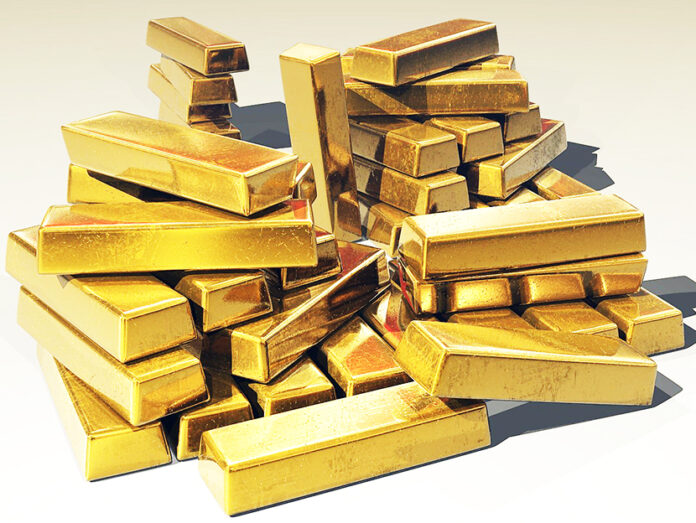The Minister for Lands and Natural Resources, Samuel Abu Jinapor, has indicated that gold exports contributed some US$6.6 billion to the economy in 2022. Despite several loopholes, the mining industry continues to be the bulwark of the Ghanaian economy, the minister said.
He acknowledged that the energy sector has also helped the economy greatly, but swiftly observed that the nation has not benefited optimally from those two sectors.
Mr. Jinapor was speaking at the fifth Ghana Mining and Energy Summit held on Wednesday, June 7, 2023 in Accra, on the theme: “Harnessing Mining and Energy Potential for Sustainable National Development.”
ISSUES
In his address, the Minister outlined some loopholes in the energy and mining sectors of the country, denying the state the actual returns from these mineral resources. He argued that Ghana has not had good negotiations in the past for the extraction of its mineral resources.
According to him, some policies and contracts have “unfortunately resulted in extraordinary profits to mining companies,” at the expense of the country.
He lamented over the failure to compile a proper framework to the benefit of the nation, adding the overdependence on the export of raw minerals, which has denied the nation of the needed benefits.
Referring to data, the Minister could not exonerate actors in the extractive industry for short-changing the country.
“Is it not alarming, as the data shows, which the extractive sector continues to be the major contributor to illicit financial flows from the continent? Illegal exploitation, tax evasion, trade mis-invoicing, transfer pricing, under-declaration, are just a few of the practices contributing to this menace,” he mentioned.
According to a report by the Africa Centre for Energy Policy (ACEP) on illicit financial flows from Ghana, which the Minister referred to, the nation loses about US$1.44 billion per year.
This is through trade mis-invoicing “with export under-invoicing and import over-invoicing accounting for almost another billion dollars. We obviously cannot sustainably develop if these continue.”
OPPORTUNITY
Nonetheless, Minister Jinapor was of the view that the summit presented the country, its energy, and mining sectors with a unique opportunity to build a sustainable and prosperous nation using clean energy and responsible mining practices.
He called on participants to unlock the full potential of the mining and energy sectors for local industrialization in a manner that ensures energy efficiency, environmental protection, and responsible ecosystem management for climate action.
He advocated for collaboration with the government and other stakeholders towards a common goal, adding that “we must prioritize sustainable practices and adopt an approach that balances economic growth, social equity, and environmental stewardship.”
GREEN MINERALS
He indicated that the Akufo-Addo led government remains committed to working with all stakeholders to ensure compliance with stringent environmental regulations, the protection of local communities, and the fair distribution of benefits.
Since 2017, the government has prioritized value addition and local content and local participation in the mining industry.
The Minister explained that the measures were being taken through policies such as the establishment of the Ghana Integrated Aluminium Development Corporation (GIADEC) and the Ghana Integrated Iron and Steel Development Corporation (GIISDEC), and the progressive revision of our local procurement list.
The Ministry of Lands and Natural Resources, he remarked, remains committed to working with the Ministry of Energy to accelerate their efforts in renewable energy development.










